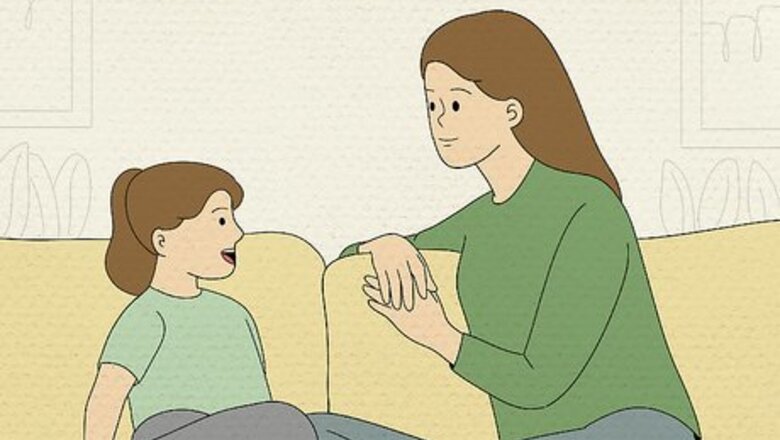
views
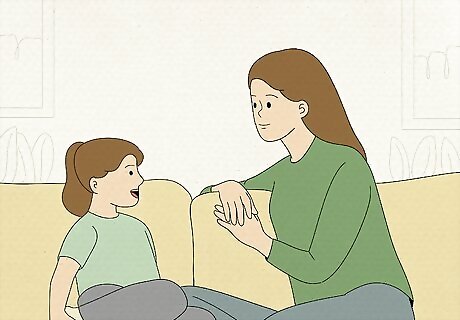
Listen. It is important to let children speak without being interrupted and to listen carefully to what they are saying. This is so important! Start when they are just learning to babble, as they are trying to communicate. Stop, look and try to understand what they are saying. If nothing else, your complete attention, eye contact, and response help them feel validation and love. Although, at times, their stories do not make a lot of sense, they often relate to facts; to lived moments, to things that they have heard or seen. Children have the capacity to embellish stories, add a few flying ponies or talking butterflies to them, but they do not all have the capacity to lie, be conniving, or create problems. However, at, approximately, age five, most kids learn how to lie, so they won't always be innocent. Therefore, if a child, for instance, mentions that his grandma doesn't like someone, you might want to question the validity of the statement. Don't worry, you probably won't like your daughter-in-law either, some day, circle of life.
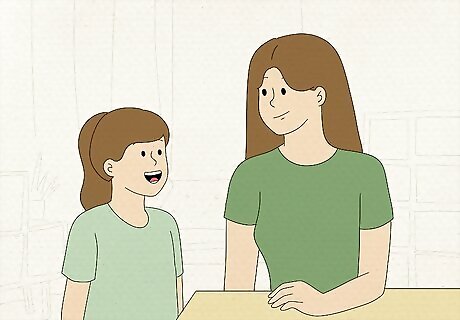
Give them undivided attention. Always look them in the eye, this is very important. Not only will you know what the child wants and feels, they will understand how you feel. They will be validated through your love of understanding.

Think like a child. It is important to think like them in a conversation in order to better understand them, because if you just think like an adult you may lack understanding and find yourself with slightly less patience, if you talk very adult-like they will ask questions about word meanings and it will become a never-ending conversation.

Pay attention to their imaginations. Expose them to as much as you possibly can and see how they react to it. While strolling or walking, every little thing along that path such as sounds, smell, touch, etc. adds to their learning and imagination. They are sponges for the first five years and it is up to you to give them all the information they will need for the future. Take your time, slow down, and see how their minds work by how they interact with the world. A child's imagination is extraordinary.
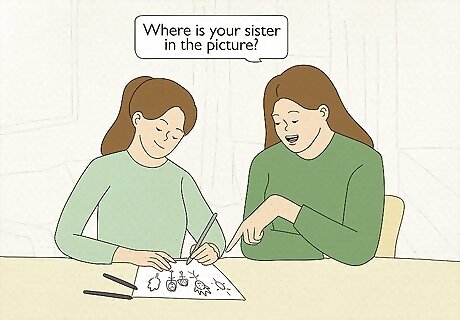
Focus on their creations. Their art work often represents their feelings. Do some children draw their dads smaller than anyone else? This behavior could be a sign that they are upset from something their dads did. Are their baby sisters missing from their pictures? This behavior could be a sign of jealousy (if you come across this, don't argue that the sister or whoever should be included, because they can't help how they feel, however it might be a good idea to ask questions such as " where is your sister in the picture?"). Adults should take the time to analyze what kids say, In order to comprehend children, parents don't have to be psychologists. But they should know their kids better than anyone else.

Play with them. Enter their world of imagination and make yourself at home, abandoned adult feelings of embarrassment and shame as crawl like a baby, meow like a cat, and jump up and down like a monkey and then watch the sparkle in their eyes. When you become a part of their world, happiness overcomes them and makes them want to connect with you more and more. This is when adults can bond with their children on the deepest level, bond with them in their world. By engaging in activities that kids enjoy, parents can transfer to them some of their traditions, morals, and beliefs and strengthen their bond with their children. This will not only give you a better understanding of your childs mind, but also a healthy relationship that both you and the child will cherish.
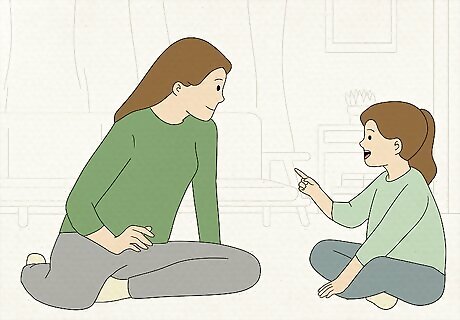
Let youngsters lead you. Let children give you roles sometimes. They might want to be the mommy or daddy for a change. Now if this is the case, you might be in for a treat because they might reenact your behavior ( or how they see you any how); reenact the way they do things too, the way they talk and even discipline. This is how children might see them. Are parents being rough, yelling too much, and nagging? Take notes, because children do. What they see in you will partially form the parents they will be or not want to be later on in life.
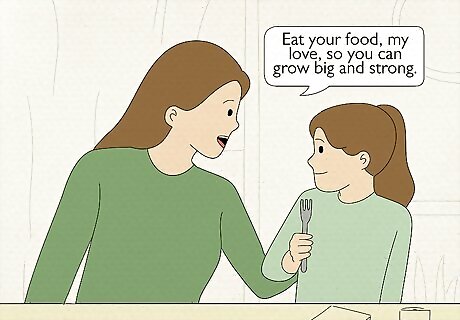
Physically, verbally, and emotionally connect More with Your Kids. Visual connections make conversations with kids more personal. Don't talk too fast or they'll stop listening, and don't use big words. Adults should use simple sentences when they speak to children, should show them love through uncomplicated speech. For instance, a parent might say, " Eat your food, my love, so you can grow big and strong" or "Sit far from the T.V to protect your beautiful eyes". They will then see parental messages in a loving way rather than in a nagging way.

Never dodge questions.

Always answer questions and queries with as much detail as possible. Never lie, and even if you feel like they're too young, just simplify it without the sugar coating! (or in the future it could cause an argument).




















Comments
0 comment